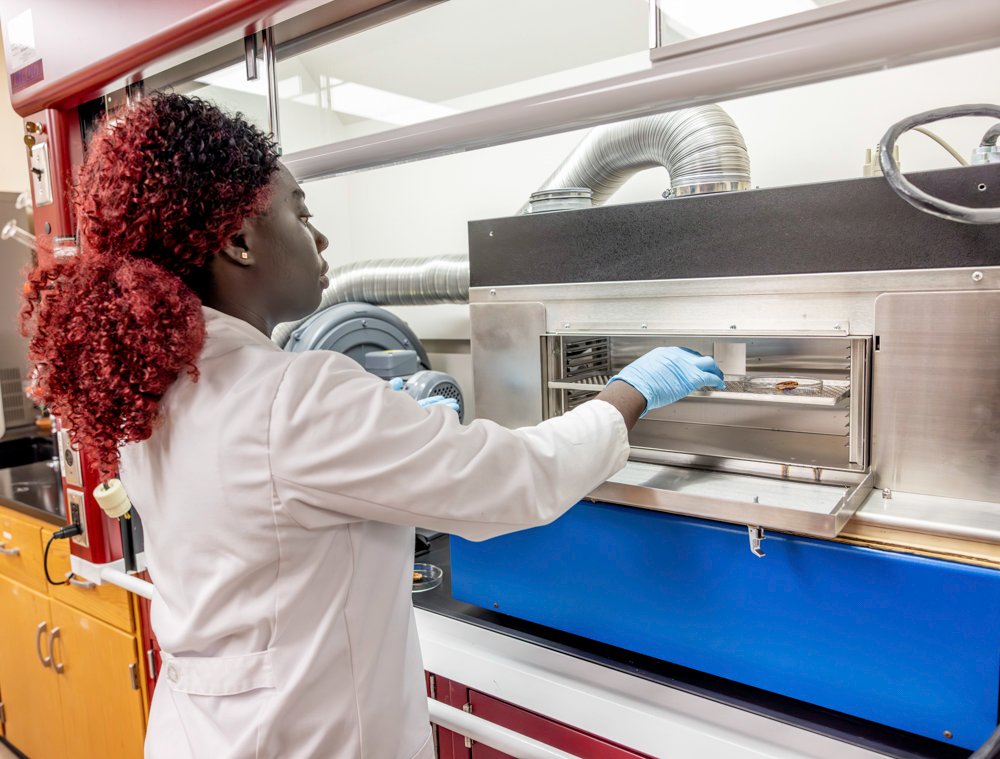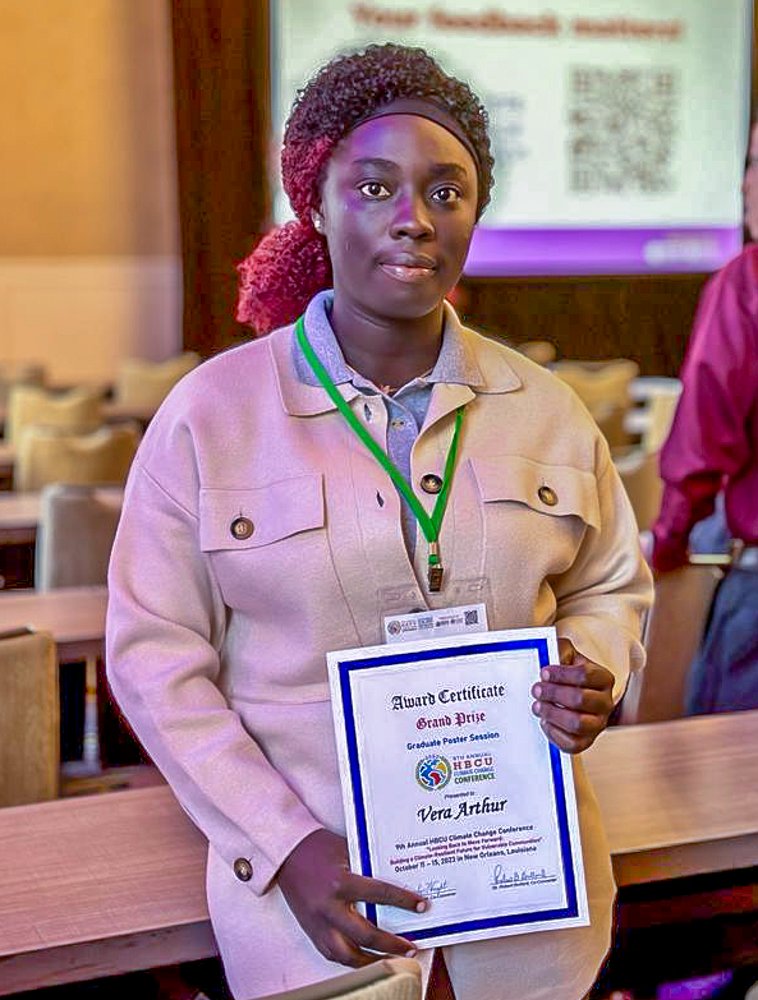Vera Arthur, a Fort Valley State University (FVSU) biotechnology graduate student, took home the grand prize award for her cutting-edge research at the recent ninth annual Historically Black Colleges and Universities (HBCU) Climate Change Conference in New Orleans.
Her poster presentation focused on the use of pulsed ultraviolet (UV) light and cold plasma to control E. coli on pecans. Arthur conducted her research in the Food Engineering Laboratory on FVSU’s campus under the guidance of adviser Dr. Ajit Mahapatra, research assistant Hema Degala and post-doctoral researcher Dr. Rabin Gyawali.
“They have been very supportive. Their reviews and suggestions are the reason I was able to do it,” she said about the win while also acknowledging Dr. Beverly Wright, coordinator of the conference.
“Vera is one of the brightest students I have ever had. She is self-driven and has done a truly exceptional job in both her research and course work,” Mahapatra commended. “I hope she continues to pursue research, because I think she has the potential to be a great food scientist. I am so proud of her.”
Arthur received $500 and a certificate for the grand prize at the conference. Approximately 25 students competed. She explained that the theme focused on climate change and how industries are contributing to the problem.
“We cannot advocate for a close-down of industries because they offer a lot of benefits for the country,” she noted. “With science and technology, there are so many activities that can be done in a safe and efficient way. I introduced my research methods on decontaminating pecans that can be used without polluting the environment.”
Pecans are a top commodity in Georgia. According to the Georgia Pecan Commission, Georgia is the nation’s top producer of pecans, producing an estimated 100 million pounds of pecans annually. Pecans add between $200 million and $300 million each year to the state’s gross domestic product.
Therefore, to help farmers in the state increase the quantity and quality of this essential product, Arthur’s objectives included using a safe and effective procedure to disinfect pecans. The student scientist explained that the industry uses various methods for decontamination such as chlorinated water or thermal treatment by dipping pecans in boiling water around 100 degrees.
Although these methods work, Arthur noted there are adverse effects.
“Some countries have banned using chlorinated water, and the hot water treatment affects the quality of the nut. It’s darker, and the fat content produces an unpleasant odor,” she said. In addition, she noted thermal treatment uses natural gases, which is a source of pollution to the environment.
To resolve these problems, Arthur and the FVSU research team is looking at safer and more effective techniques to decontaminate E. coli on pecans. Like thermal treatment, pulsed UV light can disinfect by compressing electrical energy, but the light pulses are short and environmentally friendly.

Arthur is also studying the effects of using cold plasma alone and in conjunction with the pulsed UV light. Part of her research is done in the U.S. Department of Agriculture’s (USDA) Agricultural Research Service (ARS) laboratory in Byron, Georgia, which is near FVSU’s campus. She commended the USDA ARS team for allowing her to use their cold plasma technology and for funding her project.
“The research is ongoing. So far, the pulsed UV light and cold plasma are both effective individually at decontaminating E. coli,” Arthur revealed. Further research will involve examining the duration of using these methods to kill more bacteria and any visible effects on the product.
Arthur looks forward to continuing her exploration on an issue that she hopes to solve. “I would be happy if we are able to introduce this to the food industry to help scale up farmers’ production,” she declared.
Her passion for science stemmed from her desire to be a doctor after graduating high school. The Ghana native said her father, who she admires, recommended that she attend medical school, which diverted to food science being the best fit for her.
Always interested in the lab, she recalled traveling five hours to another location in Ghana to use a tester analyzer equipment to conduct research while pursuing her undergraduate degree in food science. She is appreciative of the opportunity to have access to advanced equipment and labs at FVSU.
“I have seen a lot of improvement in myself,” the Wildcat said, beaming.
Upon obtaining her master’s degree in biotechnology, Arthur plans to pursue a Ph.D. and continue her scientific journey as a researcher in the academic arena or food industry.

